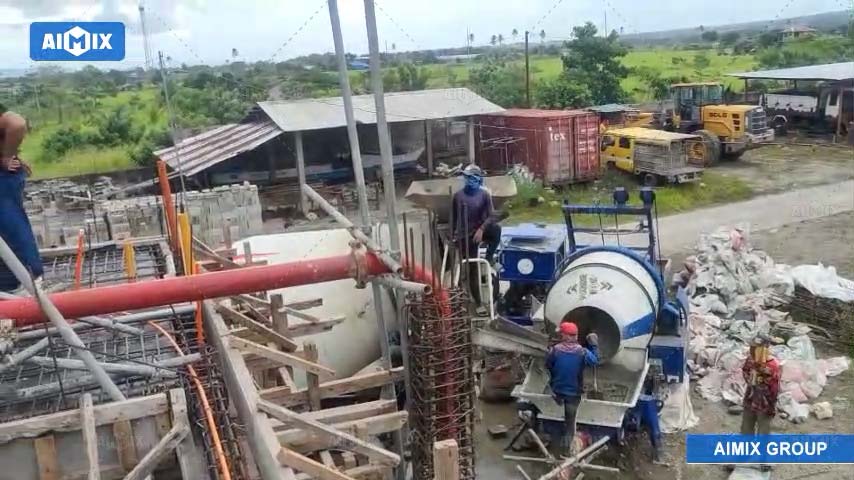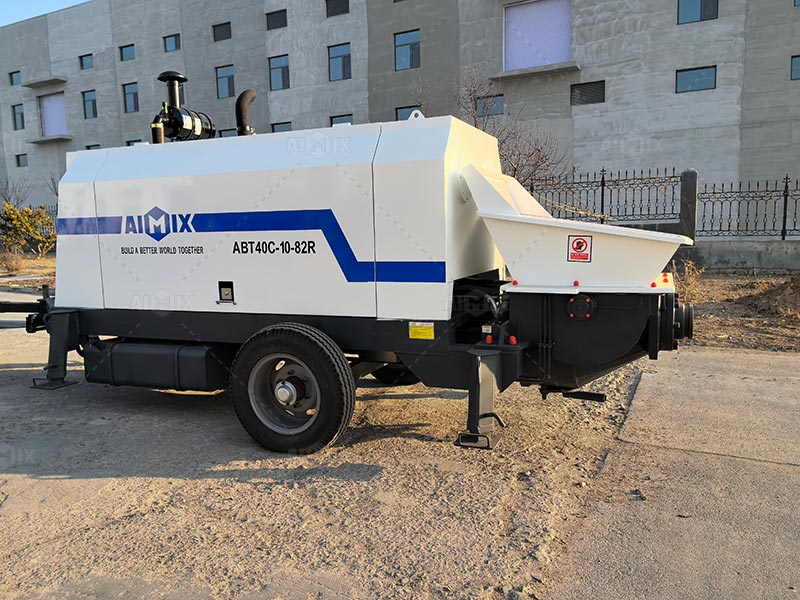Concrete pump machines are critical in construction projects, but issues like blockages and excessive pressure can lead to delays and safety hazards. Can advanced monitoring systems mitigate these risks? Let’s explore:
Concrete pumping is a vital aspect of modern construction, facilitating the efficient transfer of concrete to various locations within a construction site. However, the process is not without its challenges. Issues such as blockages within the pump system or excessive pressure can arise, potentially causing delays, damage to equipment, and even safety hazards. To address these concerns, the integration of advanced monitoring systems in concrete pouring machine is being explored. These systems offer real-time insights into the pumping process, allowing for early detection and prevention of issues. Here’s a closer look at how these technologies can enhance the efficiency and safety of concrete pumping operations:

Real-Time Monitoring of Pump Parameters
Detection of Blockages
Advanced monitoring systems can continuously monitor key parameters of the concrete pump, such as flow rate, pressure, and temperature. By analyzing these parameters in real-time, the system can detect signs of potential blockages within the pump line or the presence of hardened concrete, which can impede the flow of fresh concrete. Early detection allows operators to take corrective action promptly, preventing costly downtime and damage to equipment.
Prevention of Excessive Pressure
Moreover, advanced monitoring systems can help prevent issues related to excessive pressure during the pumping process. High pressure within the pump line can lead to ruptures or blowouts, posing safety risks to workers and causing damage to the equipment. By setting predefined pressure thresholds and employing sensors to monitor pressure levels, the system can automatically adjust the pump output or trigger alarms when pressure exceeds safe limits. This proactive approach helps ensure the safety of personnel and concrete mixer with pump while minimizing the risk of accidents.

Integration with Predictive Maintenance
Early Warning of Potential Failures
In addition to real-time monitoring of pump parameters, advanced monitoring systems can be integrated with predictive maintenance algorithms to anticipate potential failures before they occur. By analyzing historical data and trends, the system can identify patterns indicative of impending issues, such as pump wear or component degradation. Early warning notifications can then be generated, prompting maintenance personnel to inspect and address the underlying issues proactively. This proactive maintenance approach minimizes unplanned downtime and extends the lifespan of equipment, ultimately reducing operating costs for construction companies. View more info about the pump here: https://concretemixerwithpump.com/ready-mix-concrete-pump/.
Optimization of Maintenance Schedules
Furthermore, the integration of advanced monitoring systems with predictive maintenance algorithms enables the optimization of maintenance schedules. Rather than following a fixed schedule for routine maintenance tasks, such as pump inspections or component replacements, maintenance intervals can be dynamically adjusted based on the actual condition of the equipment. This data-driven approach ensures that maintenance activities are performed when necessary, maximizing equipment uptime and minimizing disruptions to construction projects.
In conclusion, the integration of advanced monitoring systems in concrete pump machines offers significant benefits in terms of efficiency, safety, and cost savings for construction companies. By providing real-time insights into pump parameters, detecting and preventing issues such as blockages and excessive pressure, and enabling predictive maintenance strategies, these systems help optimize the performance of concrete pumping operations. As technology continues to advance, the role of monitoring and automation of portable pumpcrete in construction machinery will become increasingly essential, driving improvements in productivity and safety across the industry.